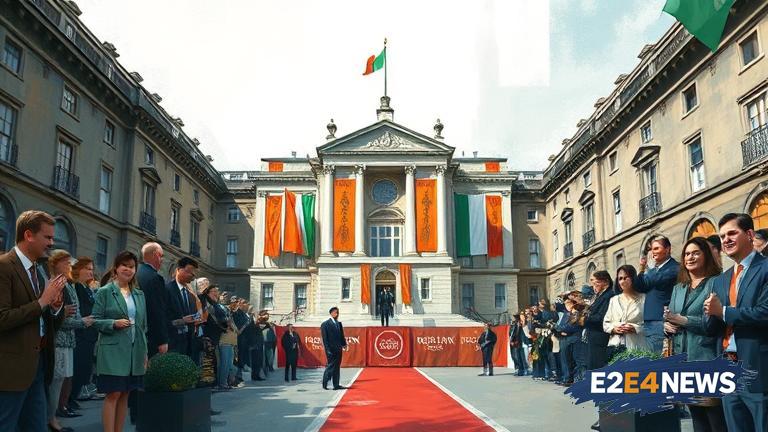The presidential election in Ireland is a significant event that takes place every seven years, where citizens have the opportunity to elect their head of state. The election process is a complex and costly affair, with candidates incurring substantial expenses to run their campaigns. The cost of running for the Aras, the official residence of the President of Ireland, can be prohibitively expensive, with estimates suggesting that candidates can spend upwards of €500,000 to €1 million or more. These costs include expenses such as staff salaries, advertising, travel, and campaign materials. Despite the high costs, many candidates are willing to take on the challenge, driven by a desire to serve their country and make a positive impact. The funding models used by candidates vary, with some relying on personal wealth, while others seek donations from supporters or apply for public funding. In Ireland, candidates can apply for a grant of up to €200,000 from the State to support their campaign, provided they meet certain criteria. However, this grant is often insufficient to cover the full costs of running a campaign, leaving candidates to rely on other sources of funding. The high costs of running for the Aras can be a barrier to entry for some candidates, particularly those from lower-income backgrounds or without access to significant financial resources. This can lead to a lack of diversity among candidates, with those from more affluent backgrounds or with established political connections having an advantage. To address this issue, some have called for reforms to the funding model, such as increasing the amount of public funding available to candidates or introducing stricter limits on campaign spending. Others have suggested that candidates should be required to disclose their sources of funding, to increase transparency and accountability. Despite these challenges, the presidential election in Ireland remains a vibrant and contested process, with a wide range of candidates and parties participating. The election is an opportunity for citizens to engage with the political process and have their say on the direction of the country. The campaign period is typically several months long, during which time candidates will crisscross the country, attending debates, rallies, and other events. They will also engage with voters through social media, television, and radio, seeking to build support and momentum for their campaign. The election itself is typically held on a Friday, with polling stations open from 7am to 10pm. Voters will cast their ballots in person, using a paper ballot, and the results will be announced shortly after the polls close. The winner of the election will be inaugurated as the new President of Ireland, serving a seven-year term. The President plays an important ceremonial and symbolic role, as well as having certain constitutional powers and responsibilities. The office of the President is highly respected in Ireland, and the election process is seen as an important part of the country’s democratic tradition. In recent years, there has been an increasing focus on the cost of running for the Aras, with some candidates facing criticism for their spending habits. This has led to calls for greater transparency and accountability in campaign financing, as well as reforms to the funding model. As the next presidential election approaches, these issues are likely to remain at the forefront of the debate. The election will be an important moment for Ireland, as citizens have the opportunity to shape the direction of the country and choose their next head of state. With the cost of running for the Aras likely to remain a significant factor, candidates will need to be strategic and resourceful in their campaigning, seeking to build support and momentum while also managing their finances effectively.





